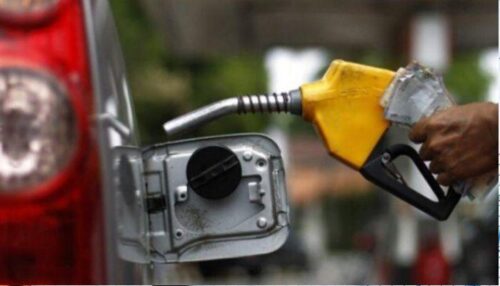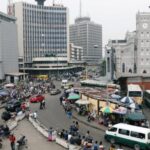Domestic Refinery Output Falls Short of Demand
The Nigerian Midstream and Downstream Petroleum Regulatory Authority (NMDPRA) has highlighted a significant gap in petrol production by local refineries. According to the agency, these refineries contribute less than 50% of the nation’s daily fuel consumption, making Nigeria heavily reliant on imports.
NMDPRA Official Speaks on Petrol Supply Deficit
During a stakeholder meeting in Abuja on Wednesday, Ogbugo Ukoha, the Executive Director of Distribution Systems, Storage, and Retailing Infrastructure at NMDPRA, addressed the issue. He stated that while Nigeria consumes approximately 50 million liters of petrol daily, domestic refineries supply less than half of this requirement. To fill the gap, the shortfall is covered through fuel imports.
Decline in Fuel Consumption Since Subsidy Removal
Ukoha also pointed out a noticeable reduction in petrol consumption following the removal of fuel subsidies under President Bola Tinubu’s administration. Before the policy change, the nation’s daily fuel supply exceeded 60 million liters. However, since the subsidy removal, consumption has stabilized around 50 million liters per day.
“All Nigerians witnessed a holiday season without fuel shortages. If we look back, petrol demand saw a steady increase in 2021, 2022, and early 2023. Prior to the new administration, daily fuel supply was averaging about 66 million liters,” he explained.
Following the subsidy removal announcement on May 29, 2023, there was an immediate decline in consumption. Since then, daily petrol usage has remained around 50 million liters, with less than half of that supplied by domestic refineries. The Petroleum Industry Act (PIA) allows the remaining deficit to be sourced through imports.”
Oil Marketing Companies Yet to Import Fuel in 2025
Addressing concerns about fuel supply, Ukoha noted that none of the Oil Marketing Companies (OMCs) have imported petrol this year. He reassured stakeholders that efforts are in place to prevent fuel shortages.
“The importation of the shortfall is being handled by other OMCs. If nothing was done to cover this gap, the country would face scarcity. The regulator remains committed to ensuring an adequate fuel supply nationwide,” he stated.
For clarification, he emphasized that local refineries are supplying less than half of the required daily petrol volume. Between January and February 2025, this trend has persisted, requiring the deficit to be covered by imports.
Government’s Strategy to Prevent Shortages
Despite the lack of petrol imports by OMCs operating local refineries this year, Ukoha assured that regulatory measures are in place to address potential supply issues. If the situation outlined in the PIA arises, where the market cannot meet demand, the government will intervene to ensure supply continuity. He reiterated that OMCs retain the right to apply for importation authorization when necessary.



